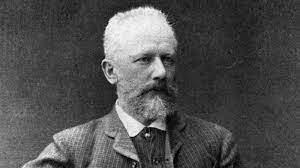


The most popular and first Russian composer whose music made a lasting impression internationally. He established himself with the "Piano Concerto No 1" but his collective body of work constitutes a great number of pieces, some of which are among the most popular theatrical music pieces in the classical repertoire, such as the famous "Swan Lake", the "Nutcracker" and the "Sleeping Beauty".
Grown up in a middle class family with many children, he was sent to a boarding school at 9, which was a desperate moment for him. Although he displayed an early passion for music, none of his teachers detected an early talent. Later, his parents wanted him to work in the civil service and Tchaikovsky honoured his parents' wishes by working in the Ministry of Justice for 4 years during which, however, he became increasingly captivated with music at his free time. He then decided to give up his promising career as a civil servant to dedicate himself to music. When he was 21, he started taking music lessons at the Russian Musical Society, and a few months later he enrolled in the conservatory, at a quiet late age considering his enormous success as a composer later in his life.
He would eventually develop into one of the most important composers of the 20th century, to a great extent because of the influence of two pianists, the brothers Rubinstein (Anton and Nikolai) who however often criticised his music. Nikolai Rubinstein helped a lot to promote Tchaikovsky's music and conducted the premieres of almost every orchestral composition that Tchaikovsky had written.
A refined, gracious and caring
man, as described by his friends, Tchaikovsky suffered from depression throughout his life, following his mother's death when he was 14, but also the death of his very close friend Nikolai Rubinstein.
His life tells us the tragedy of hiding ourselves. He tried for years to repress his homosexuality, which was socially unacceptable at that time, so he married a young music student, but the marriage was a catastrophe, with Tchaikovsky abandoning his wife 2 months after the wedding. His guilt had brought him into despair and he had attempted to commit suicide a few times. In a letter to his younger brother Modest, also homosexual, Tchaikovsky confided: "I find that our conditions are for both of us the greatest and most insurmountable obstacle to happiness".
At the latest stage of his relatively short life, the spreading of the rumour of his homosexuality beyond Russian borders, affected in a negative way the acceptance of his music in Europe and America. Contrary to the past when his music had been received with wide acclaim, it was judged to be overly sentimental, full of imperfections and even "pathological", following the scandal of his homosexuality.
He died at the age of 53, officially from cholera, but there is evidence that he actually committed suicide.